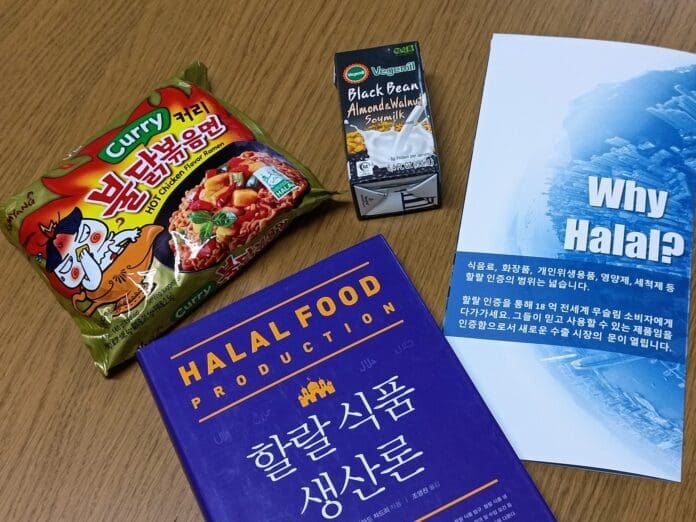In an unlikely scene at the Malaysia International Halal Showcase, a kiosk representing South Korea stood out among booths from Muslim-majority countries. Despite its homogenous population of fewer than 200,000 Muslims, South Korea has set its sights on the global halal industry, catering to the dietary rules and lifestyle requirements of 1.8 billion Muslims worldwide.
The surge in demand for Korean cuisine and snacks in Southeast Asia, where Korean pop culture has a devoted fanbase, has prompted Korean exporters to tap into the potentially lucrative halal market. South Korea’s government has supported businesses with assistance ranging from food ingredient analysis to subsidies for certification fees and promotional events.
Major Korean food companies, such as CJ CheilJedang and Nongshim, have rolled out halal-certified products, while South Korea has begun exporting halal Korean native beef and instant noodles to numerous countries.
Additionally, the “K-beauty” sector has also jumped on the halal trend, with South Korean cosmetics manufacturer Cosmax producing halal products at its facilities in Indonesia since 2016.
Despite the growing market, gaining halal certification can be challenging for businesses, especially smaller firms. To address this challenge, South Korea has four halal certification bodies overseeing the process.
However, social attitudes towards the Muslim community and Islamic culture in South Korea may pose a barrier to the industry’s growth. Opposition to the construction of a mosque and protests against the arrival of Muslim asylum seekers exemplify some Koreans’ negative attitudes towards Islam and Muslims.
For Muslims living in South Korea, finding halal products can be difficult, as they are primarily available in larger cities with substantial Muslim communities. The lack of halal products on supermarket shelves has led some Muslim residents to import halal-certified instant noodles for their consumption.
Despite these challenges, there is hope for the future of South Korea’s halal industry, as it has the potential to promote tolerance and understanding, as well as to open up new cultural opportunities.
